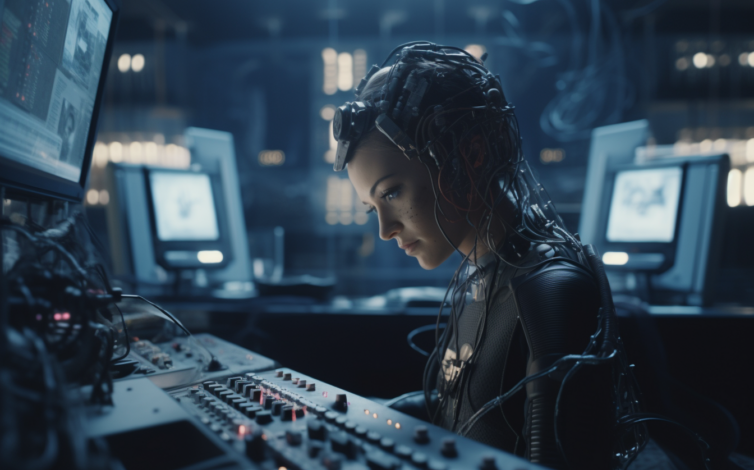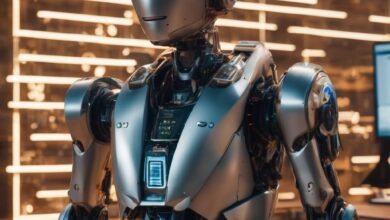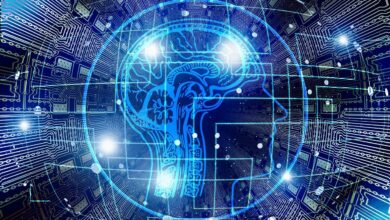Will AI-Equipped Androids Use Computers to Build Better Androids?

The rapid advancements in artificial intelligence (AI) and robotics have led to the emergence of androids—human-like robots capable of performing complex tasks. A symbolic image of an android sitting at a computer prompts the question: will AI-equipped androids use computers to build better versions of themselves?
AI and robotics have developed symbiotically, with both fields influencing and benefiting each other. In recent years, AI has enabled robots to learn, adapt, and perform tasks that were previously impossible for machines. Androids, as a subset of robotics, combine human-like physical characteristics with AI to create more advanced and versatile machines, capable of interacting and working alongside humans in a variety of environments.
Current State of AI and Androids (89 words): At present, AI is already being utilized to design and optimize androids. Machine learning algorithms and computer-aided design (CAD) tools are used to model, simulate, and predict the performance of various Android components. These tools allow engineers and scientists to refine and improve Android designs iteratively. AI algorithms can also optimize control systems, sensor fusion, and other critical aspects of Android performance. As a result, the current generation of androids is more sophisticated and capable than ever.
The Role of AI-Equipped Androids in Building Better Androids (103 words): The concept of AI-equipped androids using computers to build better androids may seem like science fiction, but it is not entirely implausible. In the near future, androids could be equipped with advanced AI systems that allow them to learn, reason, and make decisions autonomously. This would enable them to not only use computers but also participate in the design and development of next-generation androids. They could analyze existing designs, identify areas for improvement, and suggest novel solutions. In this way, AI-equipped androids could become collaborators in the development process, working alongside human engineers to create even more advanced and capable machines.
Challenges and Ethical Considerations (89 words): As we envision AI-equipped androids playing a more significant role in building better androids, several challenges and ethical considerations arise. One of the primary concerns is ensuring that AI systems are designed and programmed with appropriate safety measures and ethical guidelines. As androids become more autonomous and capable of making decisions, it is crucial to ensure that their actions align with human values and societal norms. Additionally, there may be concerns about job displacement, as AI-equipped androids could potentially perform tasks currently done by human engineers and designers.
The potential for AI-equipped androids to use computers to build better androids represents a fascinating and exciting prospect in the future of AI and robotics. As androids become more advanced, they could play a more significant role in their own development, working alongside human engineers to create increasingly capable machines. However, it is essential to address the challenges and ethical considerations that come with this technological progress to ensure that AI-equipped androids are developed in a safe and responsible manner.




